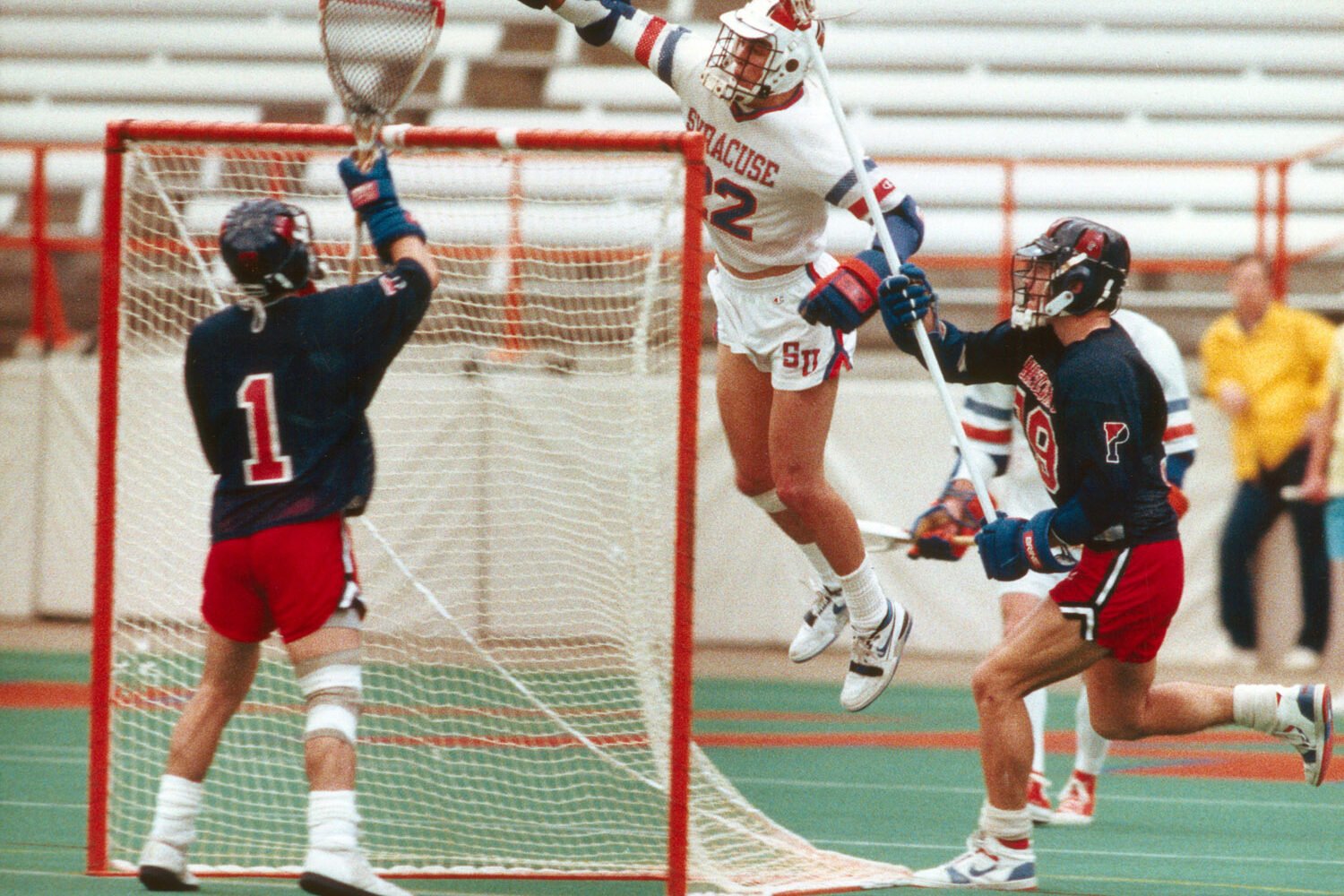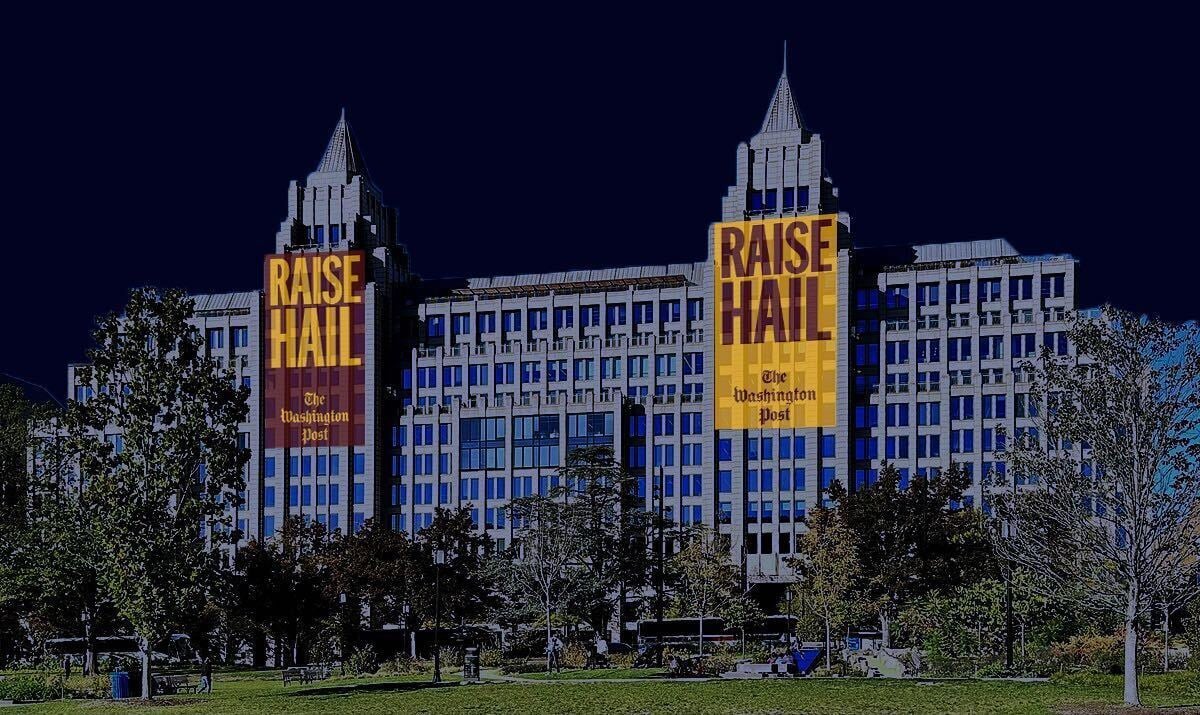This week—with the Super Bowl on Sunday—is one of the busiest times of the year for sports betting, says Jess Feil, senior director of government relations at the American Gaming Association. The pandemic has only raised the stakes: In 2020, according to Feil, Americans wagered $21 billion, a 62 percent increase over 2019. Fans stuck at home, she says, are “using sports betting as a way to engage with sports.”
Homebound local bettors are in luck. DC, which legalized sports gambling in 2018, now offers two ways to place bets—not just in person, but also online. And Virginia rolled out new betting apps last month. Here’s a guide to how the sports-betting process works here.
First of all, what sports can I bet on?
DC allows bets on professional and college football, basketball, baseball, soccer, hockey, and many other sports. There are some limitations, however. Bets on horse racing are not allowed, and you can’t bet on any college game that takes place within the District.
Similarly, in Virginia, you can’t place a bet on in-state college games. And you can’t place a sports bet at all in Maryland: The state has legalized sports betting, but has not opened any sportsbooks as of yet. Betting licenses are likely to be approved later this year or in early 2022.
How can I place a bet in DC?
One option is to go to the William Hill Sportsbook inside Capital One Arena. Once there, you can either physically place your bet or use their app.
The other choice is to use the GambetDC app, which was rolled out last May by the DC Lottery. In order to place a bet, you have to be 18 years old and physically in the District. You also can’t bet while on federal property, such as at the Washington Monument or Lincoln Memorial.
BetMGM Sportsbook is slated to open at Nats Park this summer, and FanDuel Sportsbook is opening at Audi Field later this year.
Feil says DC is giving consumers multiple options for where and how to place a bet—including “bringing betting to where sports fans are” at stadiums—unlike in other states, where most betting happens in casinos.
Still, revenue from gambling has fallen short of projections, largely due to pandemic shutdowns and the sometimes confusing Gambet app, according to a Washington Post article in September. The Post reported that the city lowered its anticipated revenue from $28 million to $12 million for this fiscal year. According to Feil, DC so far has made $3 million.
Can I go to a local bar to place a bet?
Not yet. Hotels, bars, and restaurants have to apply for a Class B license, and none have been approved to date. This has been a source of controversy in the Capitol Hill neighborhood, where residents have opposed the opening of a sports-betting facility at the bar Handle 19. Because there is no mechanism to block a gambling license, the neighborhood is targeting the bar’s liquor license. The effort has so far proven successful, since Handle 19 has repeatedly delayed its opening. But the bar’s owner, Shane August, insists he’ll open with or without the liquor license.
How can I place a bet in Virginia?
Virginia started up several betting apps last month. FanDuel, DraftKings, BetMGM, BetRivers, and William Hill sportsbooks are now approved for use in the state.*
Now I’m ready to place a bet. How does it work?
First, choose a game or a fight. Then, decide how you want to bet. One option is to take the money line, which means picking a team to win, no matter the score. Another way is to bet against the spread, meaning choosing a team based on how many more points they score against their opponent. For example, as of this writing, the Chiefs are favored over the Buccaneers by 3 points.* So if you take that bet and they win by four or more points, you win. If the Chiefs lose or win by fewer than three points, you lose. If they win by exactly three points, you get your money back.
A third option is to bet on the over/under, meaning the total number of points scored in the game. For the Super Bowl, the over/under is 57.5. You can choose whether you think there will be 58 points or more (the over), or 57 points or less (the under).
Which option will win you the most money is largely dependent on the sport, the game, and your comfort with risk.
Help! I’m still confused by some of these betting terms.
Not to worry! Here’s a brief glossary of some of the more common lingo:
Covering the spread: Winning when you bet against the point spread.
Hedging: Betting on both sides to limit your losses or guarantee a profit.
Line: Another name for the spread.
Odds: The ratio of how much money you can win to how much you put down. For example, if the odds are 5-1, that means you can win five dollars for every dollar you bet (plus your initial payment). So if you bet $10 at those odds, and win, you would win $60.
Parlay: Betting on multiple games at once. You have to win each game, meaning these are high-risk but high-reward.
Prop bet: Any bet on something other than the outcome of the game. The over/under is a popular one. A common Super Bowl prop bet is the length of the national anthem.
Vigorish (or vig): The fee taken by the bookie or gambling house on a bet. Most commonly, the sportsbook will take about 10 cents per dollar bet, but the vig varies among sportsbooks, so keep it in mind when deciding where to place your bet.
Gambling can be addictive. Does DC have safeguards to prevent risky behavior?
DC relies heavily on self-management. For example, you can set limits on bet amounts and time spent in the app. You can also voluntarily exclude yourself from gambling activities for a certain amount of time.
Feil says these measures are a “good start.” Consumers like to set their own limits, she says, and sportsbooks often have specialists who are trained to identify problematic gambling behaviors, both in person and electronically.
*This post has been corrected and updated.


















